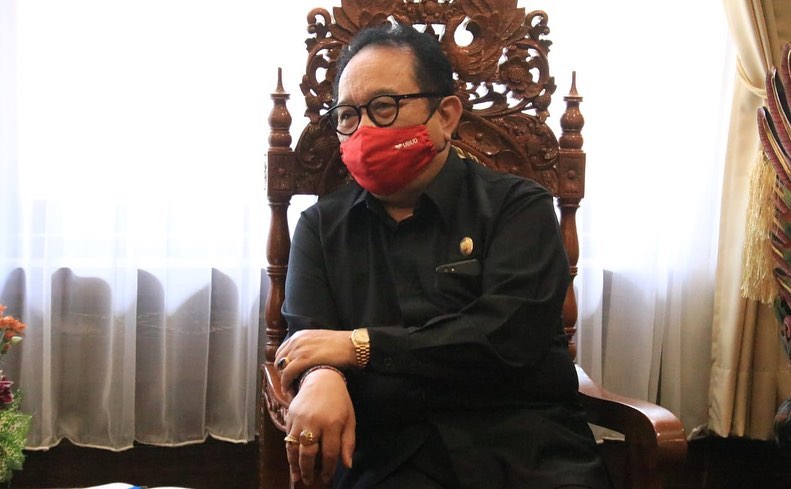It’s the question on everyone’s mind recently: what’s been driving Bali’s increasing COVID-19 cases?
With speculations abound, Deputy Governor Tjokorda Oka Artha Ardhana Sukawati has now offered a likely explanation: local transmissions have escalated from household clusters and traditional ceremonies.
“We have been looking into it carefully and in detail on what’s causing the surge in Bali. Based on reports from [officials] in regencies and cities, it’s mostly caused by local transmissions in housing areas and ceremonies,” the deputy governor, also known as Cok Ace, said yesterday.
He said that the reopening of tourist attractions across Bali has resulted in a considerable number of young people going on excursions after months of being under quarantine.
“This results in asymptomatic cases. They are young, healthy, and then they go home, infecting their parents and grandmothers who have weaker immune systems and therefore take longer to recover with higher death risks,” Cok Ace continued.
The deputy acknowledged that restrictions have loosened in recent months and offered the possibility of reinforcing the roles of traditional villages in Bali, as well as enforcement of an edict previously issued by the National Police on COVID-19 prevention, which forbids crowded gatherings.
This latest statement seems to support previous official stances that did not link the reopening of domestic tourism (that is, travelers from other parts of Indonesia) to the recent surge of coronavirus cases on the island.
Related — 3,000 tourists touched down at Bali’s Ngurah Rai airport daily last month
Bali started loosening restrictions in July, which started with local tourism and followed by reopening to domestic travelers. In the months prior to this, the province reported relatively low numbers in comparison.
On Aug. 1, Bali’s COVID-19 caseload stood at 3,448. The number has since nearly doubled as of Sept. 10, with 6,834 cases.
On Tuesday, the head of Udayana University’s School of Public Health I Made Ady Wirawan, said that the reopening of domestic tourism indicated to the public that the situation is safe, which may have led to people adopting more relaxed behavior towards COVID-19 despite the ongoing crisis.




